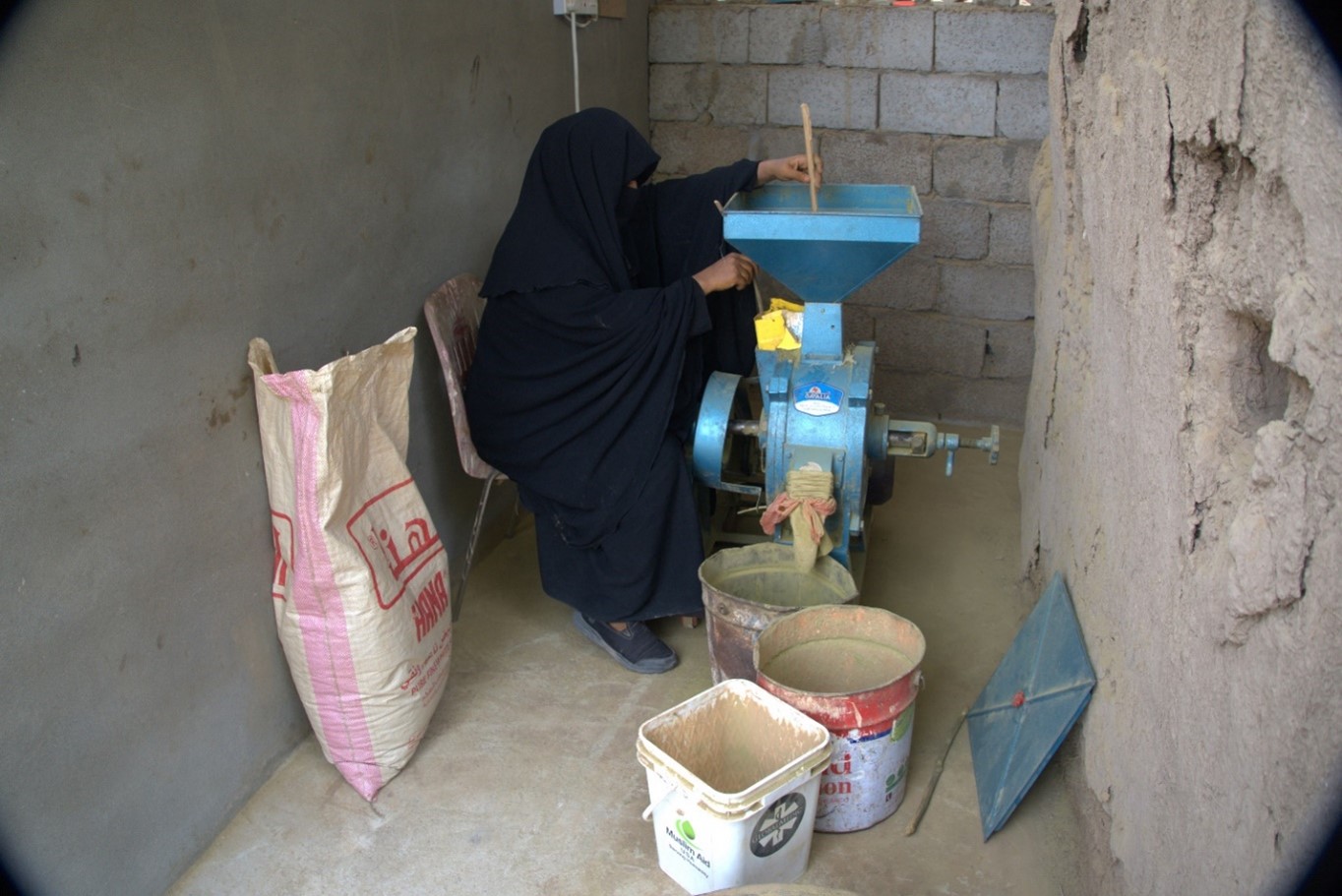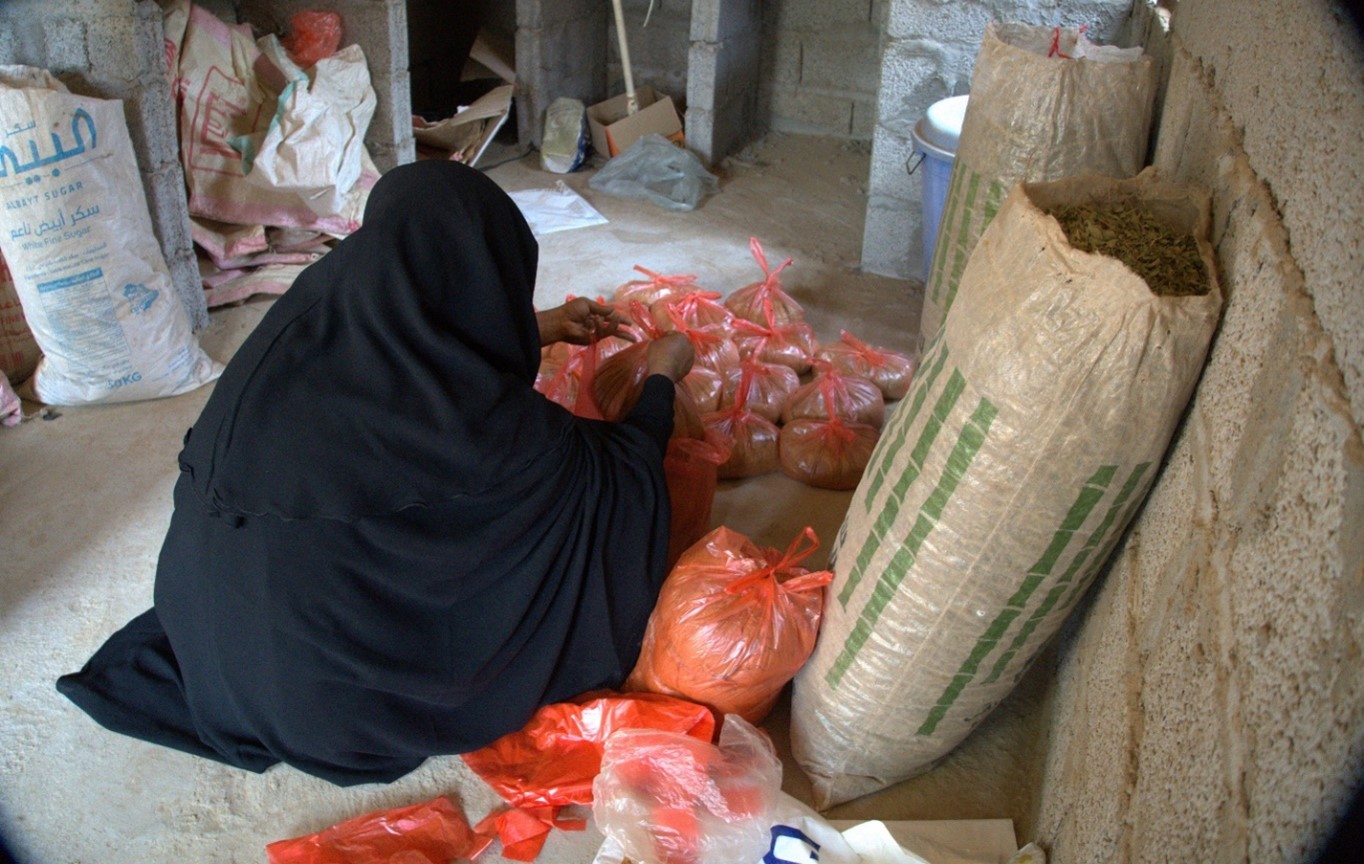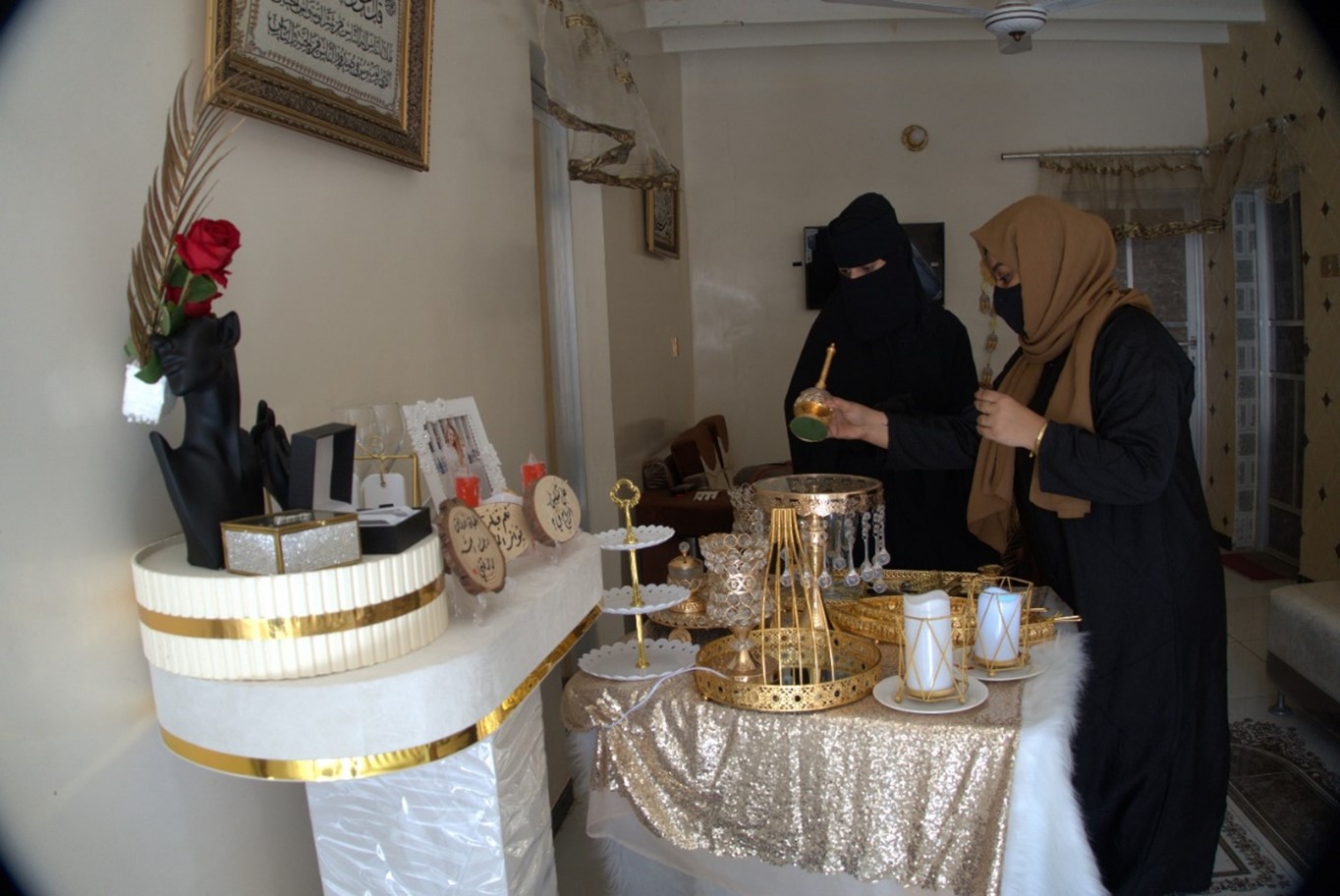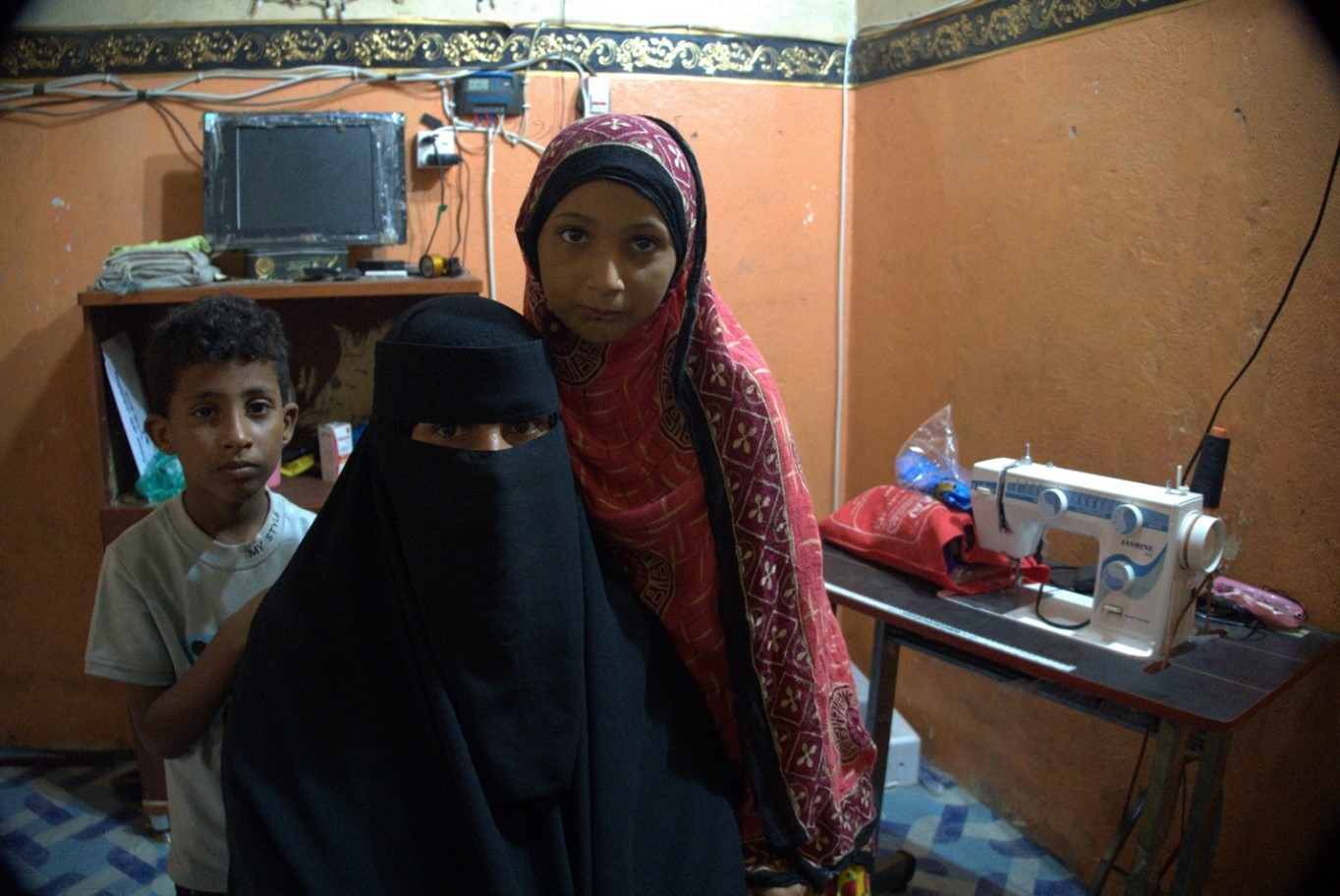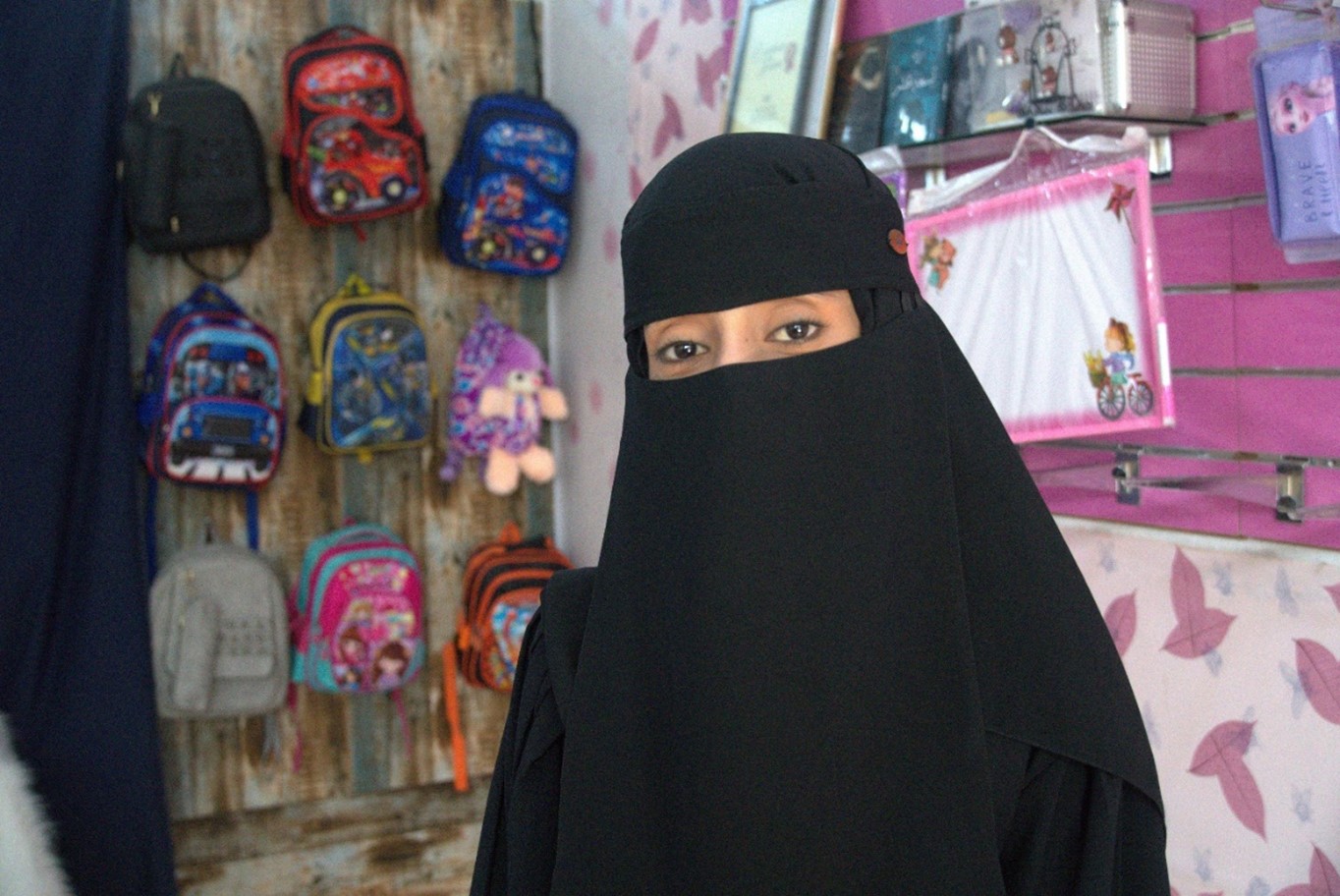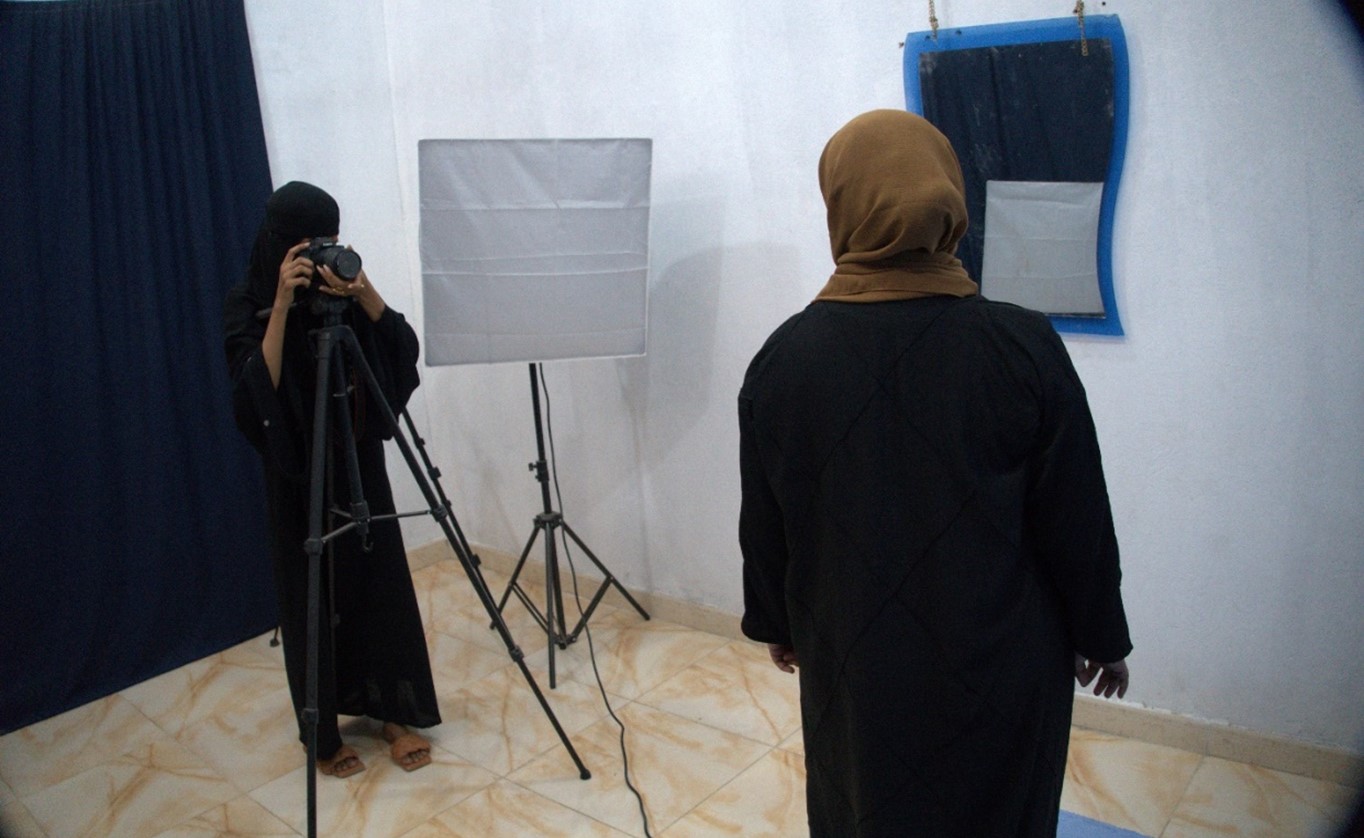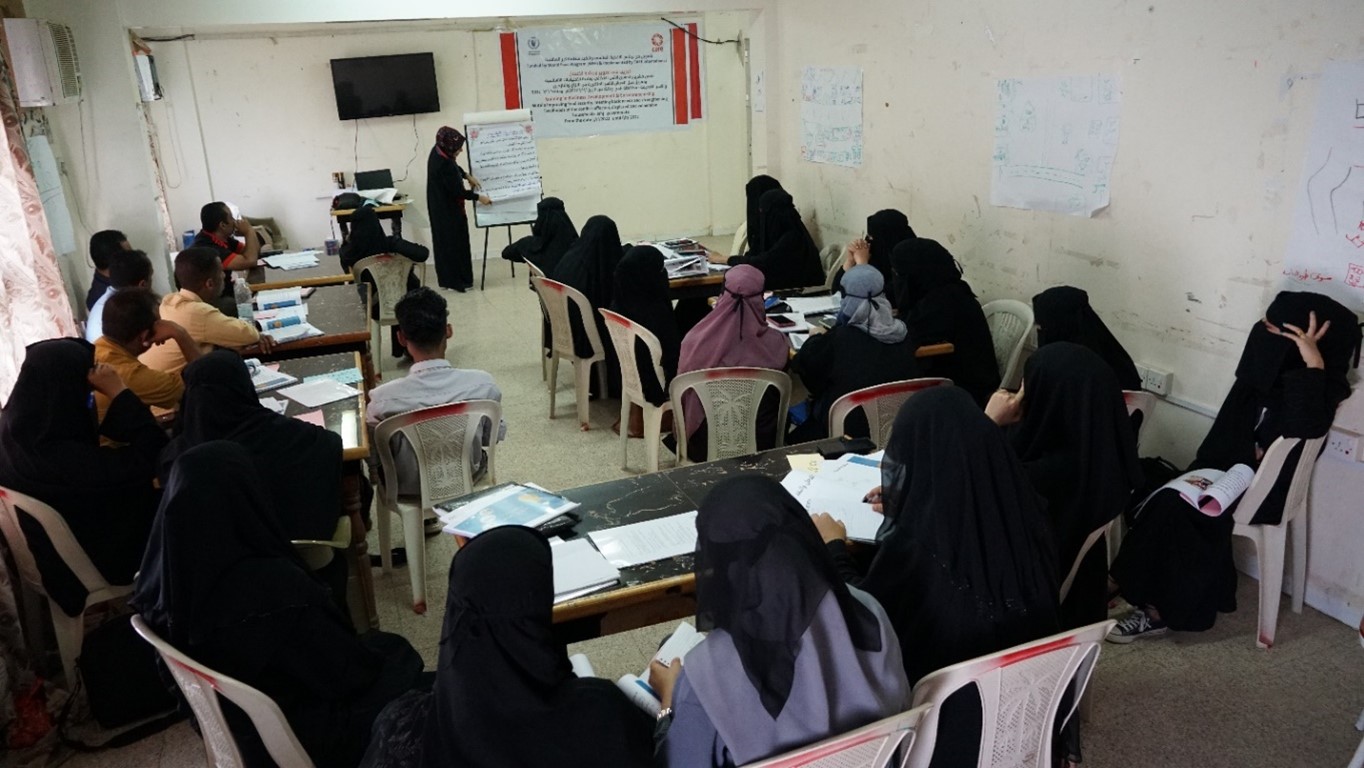Rural women in Yemen are more vulnerable to poverty, marginalization, and discrimination. They have limited access to education, health care, and job opportunities. However, despite these challenges, Yemeni women have shown incredible resilience. They have been at the forefront of supporting their families and rebuilding their communities.
“Empowering rural Yemeni women is essential to the country’s long-term recovery. Vocational training and financial grants can help women develop the skills they need to participate in income-generating activities and support their families amid the current economic crisis that ravaged the country,” says Reham Ahmed, CARE’s Early Recovery Field Officer in the Aden sub-office.
CARE delivers a Food Assistance for Training (FFT) project to improve food security and sustainable livelihoods of conflict-affected families in Lahj and Al-Dhale’e Governorates. Combining cash assistance with training and capacity-building activities, the FFT enables 2,150 project participants to meet their immediate food needs with the cash they receive in exchange for attending vocational training. In addition, they are encouraged to meet their long-term needs by equipping them with the necessary skills to improve their livelihoods. After the training, 2,134 participants received financial grants to start their small businesses.
In this article, we share the inspiring stories of four remarkable women microentrepreneurs who, through their unwavering determination, transformative training, and the gift of grants, built bridges to a bright future with their micro-enterprises.
Shadia’s business goes beyond the borders
“After my divorce, I found myself alone with one child,” says Shadia. “I had to step up and provide for myself and my child. The life skills training helped me restore my confidence and determination to start preparing and selling henna.”
“When I received the financial grant, I immediately bought a mill and four bags of henna and embarked on a journey full of successes,” she adds. “I started selling henna in the village’s market first, then I worked with several women in neighboring villages to market and distribute my products in their areas. Now, I use social media to market my products widely. I receive many orders from Yemeni immigrants in Gulf countries and America.”
As Shadia’s profits increased, she built a small storage room for henna products and raw materials in her house and a shed for the grinding machine in her yard. She also hired two women to work with her in preparing henna.
“I’m so proud of my competitive high-quality products and the success of my business,” she adds.


